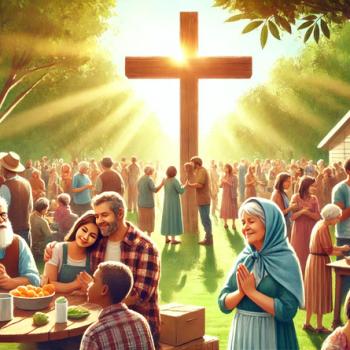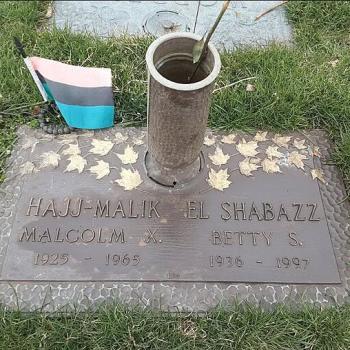In that spirit, someone attending an LDS worship service is likely to find that much of the preaching is devoted to people telling "how the Lord has wrought upon their understanding, and brought them into the path of truth, life, and salvation." That is especially true on the first Sunday of the month, in Testimony Meeting, where those who wish come before the congregation to testify of exactly such things. But it is also true of other sermons and lessons. Mormons usually end them with a testimony.
That emphasis on the testimony of personal revelation explains the way in which Mormons proselytize. Though we teach basic doctrines to those who are interested, missionary work is thought to be best conducted by bearing testimony, witness of the revelation we have received. The assumption is that when we testify of the revelation we have received, others may themselves have a revelatory experience. Genuine teaching is assumed to happen through the Holy Spirit.
Sometimes Mormons understand the need for continuing revelation as a consequence of the simplicity of the gospel. As the Book of Mormon prophet, Jarom, says, "I shall not write the things of my prophesying, nor of my revelations. For what could I write more than my fathers have written? For have not they revealed the plan of salvation? I say unto you, Yea; and this sufficeth me" (Jarom 1:2).
Those who have the plan of salvation, the good news that Jesus the Son of God has made salvation available to all, have all of the basic revelation they need. Any revelation beyond that is given in response to particular needs, the needs of the Church and the needs of its individual members. As those needs change in history, new revelations are needed, but the core revelation remains the same.
Other times Mormons think of the need for continuing revelation as a function of the profundity of divine things. In several places Mormon scripture speaks of prophets who see things that cannot be written (e.g., 2 Nephi 4:25 and 3 Nephi 26:16). One way to understand such things is to see them as forbidden to be said. They are too holy to be spoken publicly, if at all.
But another way is to understand such unwritable things as truth incapable of being said fully in space and time. But that something cannot be said once-and-for-all does not mean that it cannot be said at all. The need for continuing revelation is not only a response to changing circumstances across time or the difference between the revelation of the gospel and other revelation. It is also a consequence of the nature of the fullness of truth.
There is no such thing as the full revelation of God in history, except in the person of Jesus Christ. Outside of that revelation of a Person, divine fullness can only be revealed in this way and that, depending on our language and culture and history and moral standing and all of the other ways in which we may differ and change.
I take that to be the import of the revelation that Joseph Smith received as the preface to the Mormon scripture, The Doctrine and Covenants: "These commandments are of me, and were given unto my servants in their weakness, after the manner of their language, that they might come to understanding" (D&C 1:24). We need continuing revelation, both as a church and as individuals, because that which God would reveal cannot be revealed except in history and culture and language.





